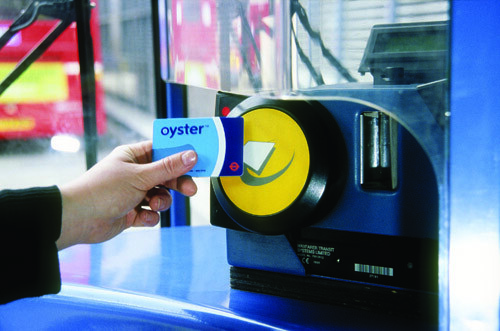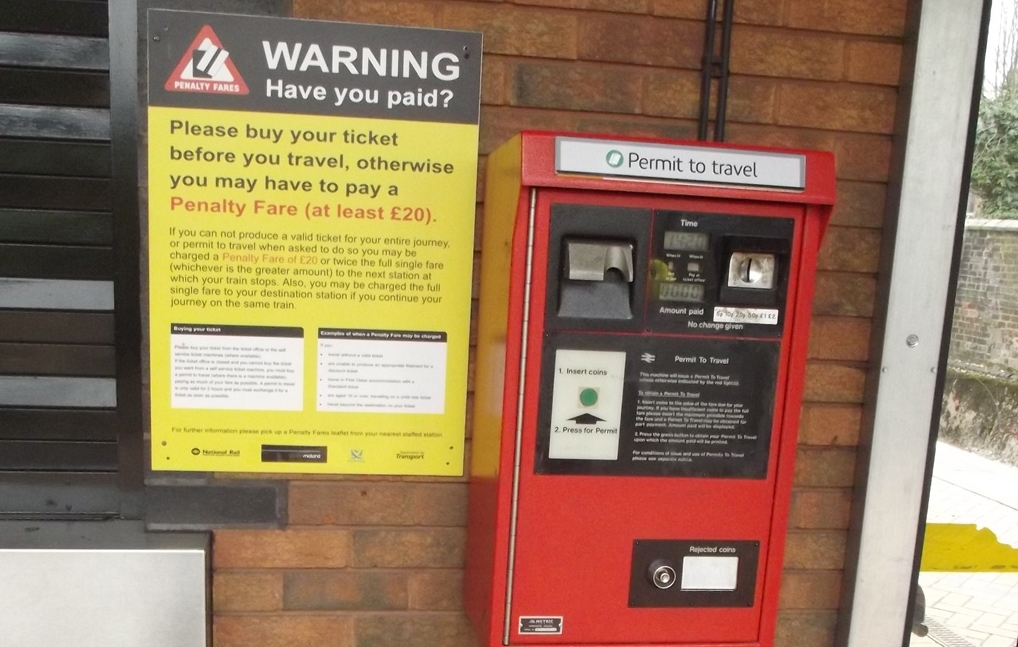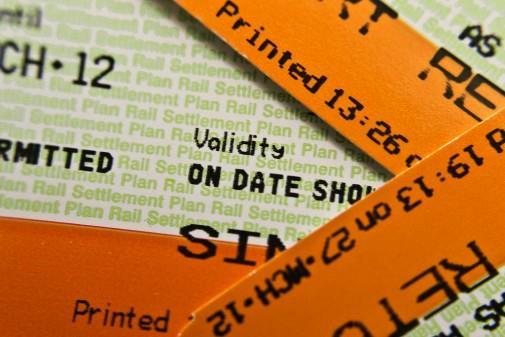Using Someone Else's Oyster Card: Risks and Consequences
Using someone else's Oyster card might appear to be a minor shortcut, perhaps you only needed to borrow a friend's concessionary pass for a single journey.
However, Transport for London (TfL) treats this practice as fare evasion and can levy serious penalties against those who misuse concessionary cards.
This article aims to provide a comprehensive overview of the laws and rules governing Oyster card usage, explain the potential legal consequences, and guide you on the steps to take if you find yourself accused.
Understanding Why It Is an Offence
Concessionary Oyster Cards
Many Londoners use standard adult Oyster cards, which are not tied to personal details beyond the balance or travelcard stored on them. By contrast, concessionary Oyster cards (for example, Zip cards for children, student cards, 60+ Oyster cards, and Freedom Passes) grant free or reduced fares to people who meet specific eligibility criteria.
Such cards are subsidised through public funding or local authority programmes, meaning they must only be used by the individuals who rightfully qualify. If someone else travels using these concessions, TfL loses revenue it would otherwise have collected from a standard fare.
Role of Revenue Protection Inspectors
To combat fraud and ensure everyone pays the correct fare, TfL employs Revenue Protection Inspectors. These inspectors patrol buses, the Tube, Overground, and other parts of the network.
They can request that you tap your Oyster card or show a valid ticket. If your name, photo, or eligibility details do not match what the inspector expects for that concession, or if it is obvious you are not entitled to the discount, the inspector can confiscate the card and record your details for further investigation.
Common Misconceptions
A frequent misconception is that having permission from the card owner makes using that person's Oyster card acceptable. However, the deciding factor is not the owner's consent but whether you personally meet the criteria for the concession. If you are not eligible for the discount, using the pass amounts to fare evasion.
Legal Framework
Fare evasion in London can be prosecuted under two main legal pathways: TfL byelaws and the Regulation of Railways Act 1889.
1. TfL Byelaws (Strict Liability)
Under these byelaws, it is an offence to travel without a valid ticket. The crucial point is that many byelaw offences are "strict liability," meaning TfL only needs to prove that you did not possess a valid ticket. If you use someone else's concessionary Oyster card, you effectively have no valid ticket for yourself.
Even if you sincerely believed you had permission or you grabbed it by accident, that may not negate the offence, though it can be considered a mitigating factor when penalties are decided.
2. Regulation of Railways Act 1889 (Dishonesty)
For more serious incidents of fare evasion, prosecutors sometimes rely on the Regulation of Railways Act 1889. Under Section 5, it is an offence to travel with intent to avoid paying.
Unlike strict liability offences, this charge requires proof of dishonest intent, meaning the authorities must show you deliberately tried to evade the correct fare. If convicted, it is viewed as a dishonesty offence and can appear on Disclosure and Barring Service (DBS) checks for a number of years, potentially harming your career and other aspects of life.
Potential Consequences
Penalty Fare Notice
If an inspector suspects you are travelling without a valid ticket, they can issue a Penalty Fare Notice. This is currently set at £100, although it drops to £50 if you pay within 21 days. When you settle a Penalty Fare, the matter usually ends there. However, for repeated misconduct or clear evidence of deliberate wrongdoing, TfL may still decide to prosecute.
Prosecution and Criminal Record
If TfL deems the offence too serious for a mere Penalty Fare, or if you fail to pay on time, you may face prosecution in the Magistrates' Court. A conviction leads to:
- A fine, often up to £1,000 or more
- Court costs and a victim surcharge
- A criminal record, which appears on DBS checks
A fare evasion conviction under TfL byelaws is still classified as criminal, but cases prosecuted via the Regulation of Railways Act 1889 are treated as dishonesty offences, potentially resulting in greater ramifications, especially for employment in trust-sensitive professions.
Confiscation or Revocation of the Card
Inspectors typically confiscate concessionary passes if they find evidence of misuse. The true cardholder may need to reapply or provide an explanation for why someone else was using their card. If the issuing authority believes the owner knowingly allowed the misuse, they may revoke the pass entirely.
Possible Imprisonment
Although a single incident of borrowing a friend's Oyster card is unlikely to lead to prison, repeated offences or large-scale fare fraud can result in jail terms. Courts generally reserve custodial sentences for the most serious or persistent evaders.
Defences and Mitigation
Strict Liability Under Byelaws
In strict liability cases, not having a valid ticket can be enough to convict. Claiming ignorance of the rules is not a complete defence. However, you can still present an explanation to mitigate the penalty, for example, by highlighting a one-off mistake. If you can show that you never intended to break the rules, TfL might be more inclined to accept an out-of-court settlement, though it is not guaranteed.
Intent Under the 1889 Act
To succeed under the Regulation of Railways Act 1889, TfL must prove you acted dishonestly and intended to avoid paying. If you can demonstrate a genuine belief you were entitled to use the card or had no idea it was concessionary, you might avoid a conviction for dishonesty. However, evidence of repeated borrowing severely undermines claims of innocent error.
Mitigating Factors
Even when liability is clear, factors like these may reduce a penalty:
- First Offence: If you have no previous record of fare evasion, you can emphasise your clean history.
- Prompt Payment: Covering any unpaid fares and showing immediate cooperation can work in your favour.
- Personal Circumstances: Severe financial stress or an urgent situation might explain (though not justify) the misuse.
- Remorse: Sincerely apologising and demonstrating that you understand the seriousness often helps.
Steps to Take If Accused
Check All Correspondence
TfL generally contacts accused individuals by letter. Ignoring these letters can push TfL toward prosecution. Read the notice carefully, note the deadline for replying (often around 10 days), and take prompt action.
Seek Legal Advice
While it is not mandatory, consulting a solicitor with experience in fare evasion cases can significantly improve your outcome. They can clarify whether you face a strict liability or dishonesty offence, advise on possible defences, and help draft any written representations to TfL.
Provide a Clear Explanation
If you respond directly to TfL, be polite, factual, and honest. If you made a mistake, acknowledge it rather than inventing excuses. A well-structured letter showing genuine remorse or clarifying any misunderstandings might persuade TfL to settle administratively, avoiding court.
Attend Any Interviews or Court Dates
If TfL invites you to an interview under caution, remember that anything you say can be used as evidence. You have the right to seek legal representation, and many solicitors can guide you on whether to attend and how to answer. If you receive a court summons, do not ignore it, failing to appear can result in a conviction by default.
Keep Records
Maintain copies of all letters and notes from phone calls or emails. These records may prove crucial if any detail is disputed later. In many fare evasion cases, documented evidence of your interactions and responses can influence the final outcome.
How Solicitors Can Help
A solicitor can:
- Evaluate the Evidence: Determining if TfL has enough proof and whether the circumstances fit byelaws or the 1889 Act.
- Draft Responses: Well-crafted letters can present any mitigating factors in a coherent, structured way.
- Negotiate with TfL: Some fare evasion cases settle via payment of administrative costs if the traveller shows remorse.
- Advocate in Court: If prosecution proceeds, legal professionals can challenge the evidence or mitigate sentencing.
Conclusion
Being caught using someone else's Oyster card is not a trivial issue. Even if it feels like a harmless favour, borrowing a friend's student or senior pass, TfL classifies it as fare evasion. In London's busy transport ecosystem, concessionary passes are designed to benefit only those who meet specific criteria. Whether you grab the wrong card by accident or intentionally borrow someone's concession, you risk facing penalties that range from a Penalty Fare to a criminal conviction.
Strict liability under TfL byelaws can render you guilty simply because you lacked a valid ticket. Meanwhile, a charge under the Regulation of Railways Act 1889 may brand the offence as dishonest, creating longer-lasting repercussions. Either way, a criminal record, whether for strict liability or dishonesty, can appear on DBS checks, affecting job prospects and other facets of life.
If you receive a letter or notice from TfL, address it swiftly. Seeking legal advice can help you understand the allegations and respond effectively. In many instances, a candid explanation and willingness to settle any outstanding fare or costs can persuade TfL not to proceed with a prosecution. Ultimately, though, the best protection is simple: do not use concessionary passes you are not entitled to. The short-term savings are rarely worth the risk of fines, legal complications, and a permanent stain on your record.
Frequently Asked Questions (FAQs)
Does the card owner's permission matter?
No. Concessionary cards must be used only by the individual who qualifies. Permission does not negate fare evasion if you do not meet the eligibility criteria.
Will I definitely have to go to court?
Not always. You might receive a Penalty Fare and avoid court if you pay promptly. TfL prosecutes cases it considers more serious or where someone ignores Penalty Fares.
Could I face a criminal record for a one-off misuse?
Yes. If TfL prosecutes and you are convicted, even a single incident can lead to a record. Penalty Fares usually end without a record, but prosecution outcomes are far more serious.
What if it truly was an accident?
Under strict liability, accidents do not necessarily absolve you of blame. They can, however, reduce the severity of the penalty or increase the chances of settling without court action.
Should I consult a solicitor?
It can be beneficial if there is a risk of a criminal conviction or if the circumstances are complex. A solicitor can help draft responses and represent you if it reaches court.
Do I have to attend an interview under caution?
You are not forced to attend, but it is often a chance to give your side. You have the right to bring legal representation. Anything you say can become evidence in court.
Can the genuine card owner be penalised too?
Yes. If they knowingly allowed misuse, their concession could be cancelled, and they may be investigated for enabling fare evasion.
How much time does TfL have to prosecute?
Generally, six months from the date of the offence for summary matters. However, respond promptly rather than relying on the passage of time.
What if I ignore TfL's letters?
Ignoring communications increases the likelihood of prosecution. TfL usually interprets silence as having no valid defence and proceeds accordingly.
Could I ever be jailed for borrowing someone else's Oyster?
While custodial sentences are rare for isolated incidents, they remain possible for repeated or large-scale fare fraud. Courts typically reserve imprisonment for serious, persistent offences.



